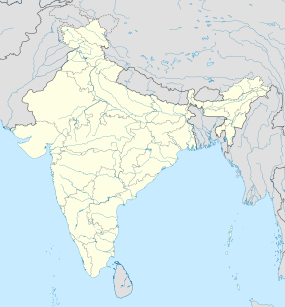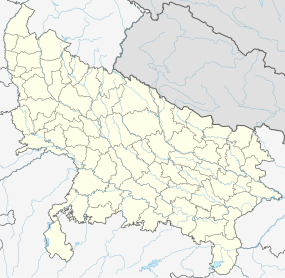Sankassa

Elephant capital at Sankassa, one of the Pillars of Ashoka, 3rd century BCE.
|
|
| Location | Farrukhabad district, Uttar Pradesh, India. |
|---|---|
| Coordinates | 27°20′02″N 79°16′16″E / 27.33389°N 79.27111°ECoordinates: 27°20′02″N 79°16′16″E / 27.33389°N 79.27111°E |
| Type | Settlement |
Sankassa (also Sankasia, Sankissa and Sankasya) was an ancient city in India. The city came into prominence at the time of Gautama Buddha. According to a Buddhist source, it was thirty leagues from Savatthi. After the Gautama Buddha's Mahaparinirvana (passing away) king Ashoka developed this place and installed one of his famous Pillars of Ashoka in the city, from which the elephant capital survives. He also built a stupa and a temple commemorating the visit of the Buddha. This temple exist even today and the ruins of the stupa are also present as a temple of Vishari Devi. It is said that the name Visahari Devi is given to the mother of the Buddha.
Currently it has ruins of old monasteries and Buddhist monuments. It is rarely visited by pilgrims since it is difficult to go to, and there are not many facilities. After a long time Alexander Cunningham (British) discovered the place in 1842. Eighty-seven years later Sir Anagarika Dharmapala (Sri Lanka) came here on spiritual quest. In 1957 Panditha Madabawita Wijesoma Thero (Sri Lanka) came to 'Sankassa' for few years and started a Buddhist school (Wijesoma Widyalaya) for poor people.
Sankassa is now identified with Sankissa Basantapura on the north bank of the Ikkhumati river (Kalinadi), between Kampil and Kannauj, twenty-three miles west of Fatehgarh, twenty-five south of Kaimganj and forty-five north of Kannauj, in Farrukhabad district of Uttar Pradesh state of India.
It was known as Sankasya Nagar and was ruled by king Kushadhwaja, was a younger brother of Janaka, the father of Sita, the heroine of Ramayana and wife of Lord Rama. Once Sudhanva, supposedly an evil king of Sankasya Nagar, demands the hand of Sita from Janaka. In a war that ensues, Janaka defeats and perhaps kills Sudhanva. He bestows the kingdom of Sankasya to Kushadhwaja.
...
Wikipedia


